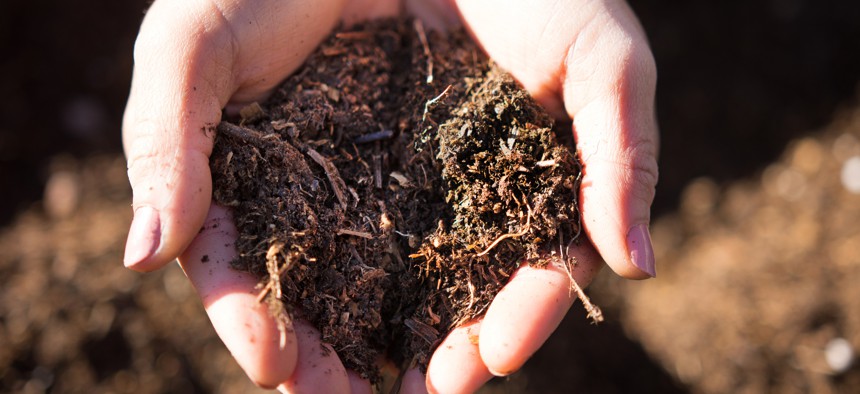California Legalizes Human Composting

Female hands holding fresh compost. jopstock/Getty Images
Starting in 2027, the state will allow human composting, a green-burial option that is also legal in Colorado, Oregon, Vermont and Washington.
This article first appeared on Stateline, an initiative of The Pew Charitable Trusts.
Earlier this week, California Gov. Gavin Newsom, a Democrat, signed into law a bill that will allow human composting, a “green burial” option that is slowly gaining recognition.
California is the fifth state to legalize the practice, following Colorado, Oregon, Vermont and Washington. Under the law, human composting will be allowed starting in 2027. The process involves placing human remains in a steel box with biodegradable materials, which help the body naturally decompose. That produces soil, which is given to family members, who may spread it or use it to grow plants.
Supporters of green burial options say that conventional burials put massive amounts of embalming fluid, steel and concrete into the ground. Cremations produce significant carbon emissions. Allowing bodies to decompose and return their nutrients to the organic cycle is a more appealing option for some environmentally conscious people.
“This new law will provide California’s 39 million residents with a meaningful funeral option that offers significant savings in carbon emissions, water and land usage over conventional burial or cremation,” Katrina Spade, chief executive officer of Recompose, a Seattle funeral home, told the Los Angeles Times.
Spade helped push for Washington state’s first-in-the-nation human composting law in 2019, and her company is the first funeral home in the country to offer the option.
Assemblymember Christina Garcia, the Democrat who sponsored the California bill, called it “an alternative method of final disposition that won’t contribute emissions into our atmosphere.”
The bill did face opposition from the California Catholic Conference, the Times reported. The group said human composting did not meet the “virtually universal norm of reverence and care towards the deceased,” turning bodies into a “disposable commodity.”





